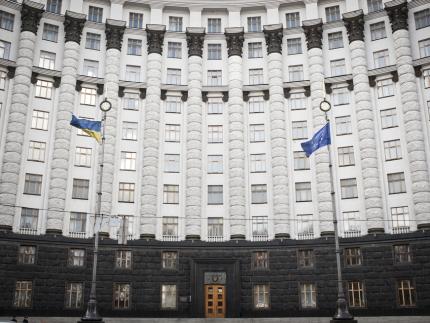Should Kyiv Blockade the Donbas Enclave?

Ever since the Poroshenko Bloc’s leader, Yuri Lutsenko, stated that the “President of Ukraine believes the cancerous tumor should be subjected to a blockade,” Ukrainians have been heatedly debating whether Kyiv should sever all ties with the Russian-occupied Donbas enclave.
Korupciya.world reports citing Wordsaffairs
The argument for a blockade, which would entail a total cutoff of economic relations as well as deliveries of electricity, gas, and water, is straightforwardly strategic. Ukraine is at war with Russia and its puppets. The Kremlin started the war and seems to have no intention to end it. Putin’s puppets engage in continual aggressions, systematically violating cease-fires, and openly stating that they intend to conquer at least all of the Donbas.
Kyiv knows it can’t win on the battlefield, but is hoping to be able to stop further Russian expansion. If Ukraine is to prevail, Kyiv needs to do everything possible to weaken the Kremlin’s proxy war machine. A blockade would hasten the Donbas enclave’s economic decline and make the region ungovernable. The blockade would do the trick.
The argument against a blockade rests on humanitarian and political concerns. A blockade would hurt the enclave’s citizens—Ukrainian citizens who don’t deserve to suffer for the misdeeds of the separatists. Abandoning these people would not only be cruel, but counterproductive, as it would turn them completely against their mother country, Ukraine. Moreover, cutting off all economic ties to Ukraine would only drive the region into Russia’s arms and thereby seal its loss to Ukraine.
Both arguments are compelling, and both arguments entail painful trade-offs, but I find the one for a blockade to be more persuasive. Which side you choose depends on what you believe Ukraine’s top priority is. For me, that’s easy: it’s the war, which is killing soldiers and civilians, undermining Ukraine’s national economy, threatening its stability and its prospects for survival, and hampering reform. The war must either end or be frozen, and the sooner the better. If a blockade promotes that goal, then it’s justified.
Would the people of the enclave suffer as a result? Yes, but remember this. The choice before Kyiv is not who should suffer, but who should suffer more: the 40 million Ukrainians in Ukraine, who are already paying an exorbitantly high price in terms of blood and money for Putin’s war, or the 3 million “Enclavians” in the Donbas, who are also paying an exorbitantly high price for their misguided support of the separatist adventure? For me, 40 million who made the right choice beats 3 million who made the wrong choice hands down.
Would a blockade drive the region into Russia’s arms? Yes and no. For starters, the vast majority of the enclave’s residents detest Ukraine and everything it hopes to become (such as a Western, democratic, rule-of-law, market state). Ditto for the separatists and their leaders. In effect, the region is already lost to Ukraine. At the same time, it’s not at all clear that the enclave would therefore join Russia. The Kremlin has made it pretty clear that it wants the enclave to remain in Ukraine. And if you don’t believe Moscow’s statements, consider its deeds. Russia has constructed a 100-kilometer-long ditch along its border with the occupied Donbas, ostensibly to keep out smugglers. Whether that’s the actual intent is unclear, but the mere fact of a long ditch separating Russia proper from the enclave its puppets claim to be liberating obviously does not testify to Russia’s desire to incorporate the enclave. And why should it? Rebuilding the region would cost billions, and Moscow is already saddled with the economic mess that is Crimea.
The choice before Kyiv—and it’s one that Ukrainian policymakers have assiduously been pretending doesn’t exist—is quite stark. Either a reformed, Western-oriented, and prosperous Ukraine without the Donbas enclave or an unreformed, Russia-oriented, and backward Little Russia with the enclave. You can’t have both. And if you don’t believe me, listen to Yuri Shvets, a former Ukrainian KGB agent now living in Washington: “The Donetsk and Luhansk province territories captured by the aggressor … are a Trojan horse. Putin created it; let him now feed it. To let that ‘horse’ into Ukraine is tantamount to political and economic suicide.”
Политика конфиденциальности | Правила пользования сайтом







